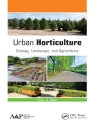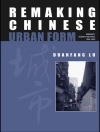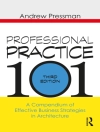Expertise and Architecture in the Modern Islamic World explores how architectural traditions and practices were shared and exchanged across national borders throughout the world, departing from a narrative that casts European actors as the importers and exporters of Islamic designs and skills. Looking to cases that touch on empire building, modernization, statecraft and diplomacy, this book examines how these processes have been contingent on a web of expertise informed by a rich and varied array of authors and contexts since the 1800s. The chapters in this volume, organized around the leitmotif of expertise, demonstrate the thematic importance and specific utility of in-depth and broad-ranging knowledge in shaping the understanding of architecture in the Islamic world from the nineteenth century to the present. Specific case studies include European gardeners in Ottoman courts, Polish architects in Kuwait, Israeli expertise in Iran, monument archiving in India, religious spaces in Swedish suburbs and more.
This is the latest title in Critical Studies in Architecture of the Middle East, a series devoted to the most recent scholarship concerning architecture, landscape and urban design of the Middle East and of regions shaped by diasporic communities more globally.
Tabela de Conteúdo
Introduction
Peter H. Christensen
Chapter 1: ‘I don’t want orange trees, I want something that others don’t have’: Ottoman Head-Gardeners after Mahmud II
Deniz Türker
Chapter 2: A Nineteenth Century Architectural Archive L Syed Ahmad Khan’s Āṣar-us-Ṣanādīd
Mrinialini Rajagopalan
Chapter 3: The Balyan Family and the Linguistic Culture of a Parisian Education
Alyson Wharton
Chapter 4: Drawing Knowledge, (Re-)Constructing History: Pascal Coste in Egypt
Eva-Maria Troelenberg
Chapter 5: A Bourguibist Mural in the New Monastir? Zoubeïr Turki’s Play on Knowledge, Power, and Audience Perception
Jessica Gerschultz
Chapter 6: Expertise in the Name of Diplomacy: The Israeli Plan for Rebuilding the Qazin Region, Iran
Neta Feniger and Rachel Kallus
Chapter 7: Industrial Complexes, Foreign Expertise, and the Imagining of a New Levant
Dan Handel and Alona Nitzan-Shiftan
Chapter 8: Mobilities of Architecture in the Global Cold War: From Socialist Poland to Kuwait and Back
Łukasz Stanek
Chapter 9: Form Follows Faith: Swedish Architects, Expertise, and New Religious Spaces in the Stockholm Suburbs
Jennifer Mack
Sobre o autor
Christiane Gruber is a professor of Islamic art in the Department of the History of Art at the University of Michigan, Ann Arbor, as well as the founding director of Khamseen: Islamic Art History Online. Her work explores medieval to contemporary Islamic art, especially figural representation, depictions of the Prophet Muhammad, manuscripts and book arts, architecture, and modern visual and material cultures. Gruber’s recent publications include The Praiseworthy One: The Prophet Muhammad in Islamic Texts and Images (Indiana University Press, 2019) and an edited volume The Image Debate: Figural Representation in Islam and Across the World (Gingko and University of Chicago Press, 2019).
Contact: Department of the History of Art, University of Michigan, 110 Tappan Hall, 855 S. University Ave., Ann Arbor, MI 48109, USA.












